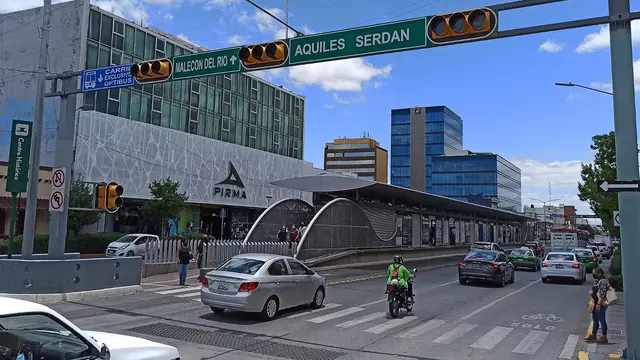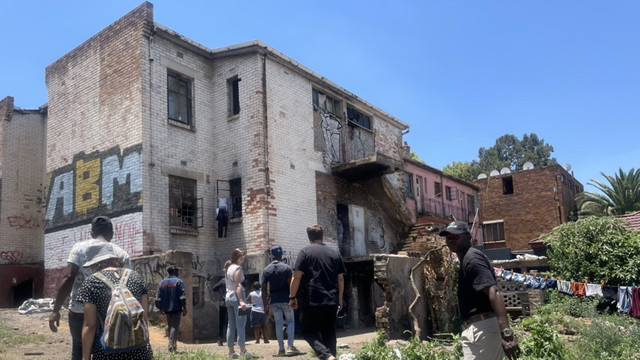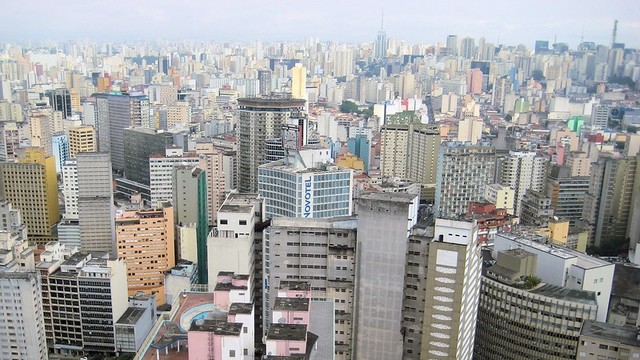Better for everyone: exposing the hidden value of equitable housing in informal settlements
This IIED Debates event explored the social, economic and environmental returns that can be gained from equitable access to housing in informal settlements. It focused on how we can respond to the housing crises with political will and action that considers the needs and aspirations of those living in informal settlement and the wealth of existing evidence.
Informal settlements in Dwarzark, Sierra Leone (Photo: Camila Cocina/IIED)
More than one billion people around the world live in informal settlements and lack access to adequate housing. New evidence shows how access to adequate housing in informal settlements can reduce inequities, improve human developmental outcomes, generate economic growth, care for the environment and fulfill human rights – so why does housing in informal settlements remain unprioritised, under-resourced and misunderstood?
Improving the lives of those living in informal settlements is an urgent task that has implications that go beyond their individual wellbeing and affect the entire society.
The findings from a new report ‘Improving housing in informal settlements: assessing the impacts in human development’ from Habitat for Humanity and IIED demonstrate that equitable access to adequate housing in informal settlements can generate a direct impact of as much as 10.5% economic growth and that life expectancy could grow up to 4%, adding 2.4 years of life on average around the world.
In other words, when residents of informal settlements do better, everyone does better.
This IIED Debates event, hosted in partnership with Habitat for Humanity, explored the impacts of improving access to adequate housing in informal settlements in terms of income, education and health outcome.
Our speakers unpacked the findings of the study and shared their recommendations for addressing the urgent housing crisis in a way that responds to the housing needs and aspirations of those living in informal settlements.
What would be the implications of improving the housing conditions of those living in informal settlements if interventions took place at a massive scale in a country? What would be the impacts in terms of income, health and education for both residents of informal settlements and the wider society? And what are the implications for wider housing debates and advocacy work?
About the speakers
- Alexandre Apsan Frediani (moderator) is principal researcher at IIED and specialises on issues around human development in cities of the global South
- Camila Cociña is housing justice researcher at IIED whose work focuses on housing, urban equality, gender, informality and participatory urban governance
- José Manuel Roche is an independent consultant and research associate at the Oxford Department of International Development
- Raquel Ludermir is advocacy coordinator for Habitat for Humanity, Brazil
- Lorena Zarate is founder and member of support team at the Global Platform for the Right to the City
- Julieta Perucca is deputy director of The Shift
- Amanda Entrikin is director of global affairs and advocacy at Habitat for Humanity International
Event coverage
Watch a full recording of the event below or on IIED's YouTube channel, where individual links to the start of each speaker's contribution are also provided.
About IIED Debates
This event was part of the IIED Debates series. Through the convening of expert speakers and external stakeholders, IIED brings together an international community to discuss critical issues.
IIED Debates encompass both physical and digital events, including critical themes, breakfast debriefs and webinars. These events are public and are hosted regularly throughout the year online and when possible in our London and Edinburgh offices.
IIED events newsletter
Sign up to our mailing list for updates and invitations to events throughout the year, including webinars, critical themes and debriefs.
Contact
Juliette Tunstall (juliette.tunstall@iied.org), external events officer, IIED's Communications Group




